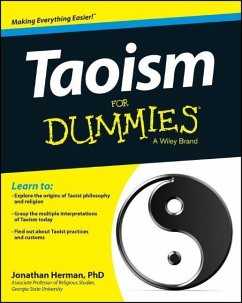
Modern Islamist Movements
Versandkostenfrei!
Versandfertig in über 4 Wochen
48,99 €
inkl. MwSt.
Weitere Ausgaben:

PAYBACK Punkte
24 °P sammeln!
Islamism has become one of the most potent political and religious movements of our time. Modern Islamist Movements provides a clear and accessible examination of the histories, beliefs, and rationales of various Islamist groups; it includes discussions of their humanitarian and militant aspects as well as their grievances with respect to the West and governments within the majority Muslim world. The book also examines some Islamist groups' reasons for desiring a global Islamic empire and their visions for it.
Beginning with a thorough introduction to various trends within Islamism, this volume analyzes the formation and development of such groups and trends as Egypt's Muslim Brotherhood, al-Qaida, Hamas, the Wahhabis, Pakistan's Jama'at-i Islami, and the Taliban. The book then discusses the historic evolution of various institutions and ideas related to Islamist groups in Egypt, the West Bank and Gaza, Saudi Arabia, Pakistan, and Afghanistan. Exploring several Islamic understandings of jihad and explaining the Islamists' interpretations of this concept, this book sheds light on the thought and ideologies of Islamists within the broader context of Islam and its history.
Beginning with a thorough introduction to various trends within Islamism, this volume analyzes the formation and development of such groups and trends as Egypt's Muslim Brotherhood, al-Qaida, Hamas, the Wahhabis, Pakistan's Jama'at-i Islami, and the Taliban. The book then discusses the historic evolution of various institutions and ideas related to Islamist groups in Egypt, the West Bank and Gaza, Saudi Arabia, Pakistan, and Afghanistan. Exploring several Islamic understandings of jihad and explaining the Islamists' interpretations of this concept, this book sheds light on the thought and ideologies of Islamists within the broader context of Islam and its history.
Modern Islamist Movements provides a clear and accessible examination of the history, beliefs and rationale of Islamist Groups and their grievances with the West and governments within the majority-Muslim world, while examining some of these groups visions for a global Islamic empire.
A clear and accessible text that examines the history, beliefs and rationale for violence emerging from Islamist movements, while examining some of these groups visions for a global Islamic empire
Examines Islamist grievances against the West and modern governments in the majority Muslim world, while providing an overview of Islam s relations with the West from the period of the Crusades to the modern age
Discusses the historic development of Islamism in Egypt, the West Bank and Gaza, Saudi Arabia, Pakistan, and Afghanistan
Explains classic Islamic understandings of jihad and Bin Laden s, al-Qaida s, and other Islamists interpretations of this concept
Offers an historical account of the formative relationship between al-Qaida, other Islamists, and Islamic intellectual trends beginning in the eighteenth century
Appropriate for undergraduate and graduate students, as well as interested general readers
A clear and accessible text that examines the history, beliefs and rationale for violence emerging from Islamist movements, while examining some of these groups visions for a global Islamic empire
Examines Islamist grievances against the West and modern governments in the majority Muslim world, while providing an overview of Islam s relations with the West from the period of the Crusades to the modern age
Discusses the historic development of Islamism in Egypt, the West Bank and Gaza, Saudi Arabia, Pakistan, and Afghanistan
Explains classic Islamic understandings of jihad and Bin Laden s, al-Qaida s, and other Islamists interpretations of this concept
Offers an historical account of the formative relationship between al-Qaida, other Islamists, and Islamic intellectual trends beginning in the eighteenth century
Appropriate for undergraduate and graduate students, as well as interested general readers













